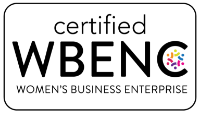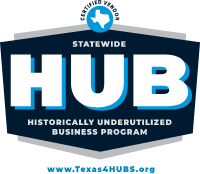Hiring managers know that what often separates good hires from great ones isn’t found in their GitHub repositories or certification lists – it’s their soft skills. Resumes might showcase technical prowess, but it’s during interviews that you discover the human elements, including soft skills, that indicate a culture fit. Here are 5 interview questions to assess soft skills, along with what to look for in a candidate’s responses.
1. “Can you share a time when you faced a conflict with a coworker and how you resolved it?”
This question opens a window into a candidate’s emotional intelligence and conflict resolution abilities. Strong answers demonstrate active listening, empathy, and a solution-oriented mindset.
For instance, a standout response might sound like this:
“When my colleague and I disagreed about the approach to a system migration, I scheduled a one-on-one meeting. I listened to their concerns about downtime risks and shared my thoughts about long-term maintainability. We ultimately created a hybrid solution that addressed both perspectives.”
Watch for candidates who focus on the resolution process rather than dwelling on the conflict itself. Red flags include placing all blame on others or avoiding responsibility for their part in the situation.
Recommended: The Right Hire: Why Culture Fit and Soft Skills Matter
2. “How do you handle feedback, especially when it’s critical?”
In tech roles, where code reviews and design critiques are routine, handling feedback gracefully is par for the course. This question reveals a candidate’s growth mindset and emotional maturity.
Strong candidates typically share specific examples of implementing feedback and view criticism as an opportunity for improvement. They might discuss how a challenging code review helped them adopt better practices or how constructive criticism improved their project management approach.
For instance, a standout response might sound like this:
“Last year, I received feedback that my technical documentation wasn’t detailed enough for junior developers on the team. Initially, I felt defensive because I was writing documentation the same way I had for years. But after sleeping on it, I realized this was a chance to make our team more efficient.
I met with some junior devs to understand their pain points, started including more context and examples in my docs, and even created a template for consistent documentation. Six months later, our onboarding time for new team members had decreased by 40%. That experience taught me that feedback, even when it stings at first, often highlights opportunities to create better outcomes for everyone.”
This response stands out because it:
- Acknowledges the initial emotional reaction (showing self-awareness)
- Demonstrates reflection and willingness to change
- Takes concrete action to improve
- Shows measurable results
- Reflects on the learning experience
Be wary of responses that show defensiveness or difficulty accepting different viewpoints. The best candidates demonstrate self-awareness and a genuine appreciation for diverse perspectives. They know that feedback is part of the job, and they take it in stride.
Recommended: 6 Useful Tips to Scale Your Workforce Fast
3. “Tell me about a time you had to learn something quickly to complete a project.”
Technology evolves rapidly, and the ability to adapt and learn is invaluable in the tech field. This question helps identify candidates who thrive in dynamic environments.
An impressive answer might sound like this:
“When our team needed to implement a new security protocol, I had two weeks to become proficient. I combined online courses, documentation deep-dives, and pair programming with experienced colleagues to get up to speed. The project launched on time, and I’ve since helped train others on the protocol.”
Look for candidates who demonstrate resourcefulness, strategic learning approaches, and enthusiasm for acquiring new skills.
4. “How do you prioritize your tasks when everything feels urgent?”
Managing competing priorities is a daily reality in tech environments. Various projects get prioritized and deprioritized regularly. This question reveals a candidate’s organizational skills and decision-making process.
Strong responses should outline a clear methodology for evaluating task importance and urgency. Listen for mentions of stakeholder communication, risk assessment, and strategic thinking.
For example:
“I use a matrix to evaluate both urgency and impact, consult with stakeholders and team members to understand dependencies, and maintain transparent communication about any timeline adjustments.”
The best answers balance analytical thinking with practical experience and show an understanding of business impact alongside technical considerations.
5. “Can you describe a situation where you went above and beyond for your team?”
This question helps uncover a candidate’s collaborative spirit and initiative. It reveals whether they’re likely to be a supportive team player who elevates the entire group’s performance.
Here’s what a standout response might sound like:
“During a critical product launch, I noticed our QA team was overwhelmed with testing requirements. Although I was a frontend developer, I spent a weekend learning our automated testing framework and took on some of the test writing to help out. I also created a shared Trello board to track our testing progress. What started as temporary help turned into a permanent improvement – we now have better developer-QA collaboration, and I help train other developers on testing best practices. This approach has reduced our bug backlog by 30% and made our releases much smoother.”
Pay attention to whether the example they share truly represents going “above and beyond” versus simply meeting job expectations.
Recommended: Streamline Your Hiring Process to Retain Top Candidates
Build Stronger Teams Through Better Hiring
Technical skills may get candidates through the door, but it’s their soft skills that determine their ultimate impact on your team and company culture.
Remember to adapt these questions to your specific team culture and needs. The best interviews feel like natural conversations rather than interrogations, so use these questions as starting points and follow up based on the candidate’s responses.
Whether you’re a hiring manager looking to build a more cohesive team or a job seeker preparing for interviews, understanding the importance of soft skills and how to communicate them can make all the difference in finding the right fit.
Need help finding candidates who excel in both technical and soft skills? Contact BravoTECH today at 800.762.7286 or info@bravotech.com to learn how we can help you streamline your hiring and secure top talent—even before they’re on the market.



